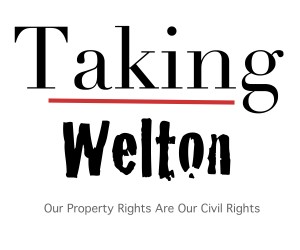You are safe from the king, but watch out for the park board
“he common man came to acquire land, i.e., land he could legally protect not only from his noble and not-so-noble neighbors, but also from the crown. In fact, John Locke, the English philosopher, would eventually write: “The primary purpose of government was to protect rights in property since these rights were at the basis of all liberties.”
That basic right recognized by Locke’s “common law” was the right of sole dominion, the right to exclude others, the right against trespass, the right of quiet enjoyment, the right of free use, and so forth. By the time of William Pitt (the Great Commoner), the following could be declared in the House of Commons:
“The poorest man may, in his cottage, bid defiance to all the forces of the Crown. It may be frail; its roof may shake; the wind may blow through it; the storms may enter; the rain may enter; but the King of England may not enter; all his forces dare not cross the threshold of the ruined tenement.”
This belief in the importance of private property was carried over into America’s founding principles. Indeed, according to the historian Paul Johnson, the United States is the only land founded specifically with the common man in mind – the origin of its claim to exceptionalism.
So, how high was the right of property on our list of first principles? The Founding Fathers, believing that respect for this right should be the heart of their courageous experiment in social contract, gave every legal weight to their emotional tie to property.
Indeed, Thomas Jefferson, reflecting on Locke, wrote the principle into the Declaration of Independence. (Benjamin Franklin is said to have only offhandedly substituted the more encompassing “pursuit of happiness” for the original “property.”)”
Paris, Allen. News Sentinel 4 November 2013.
